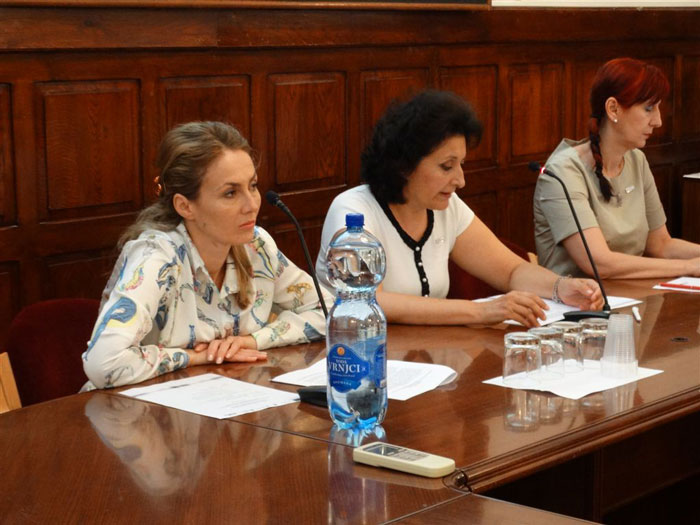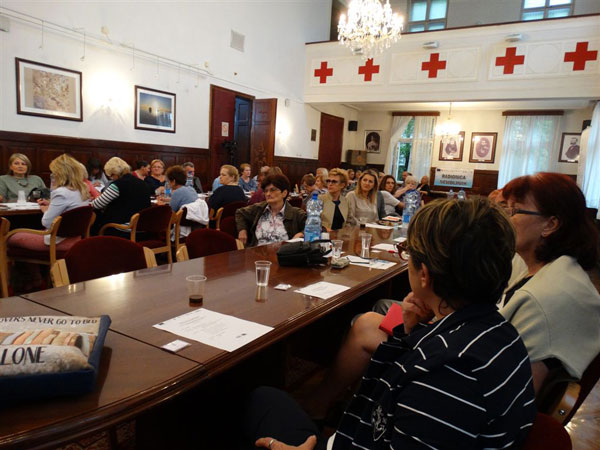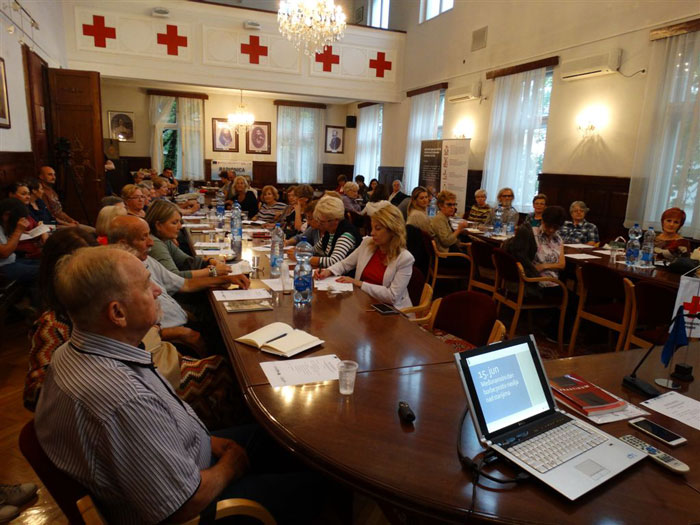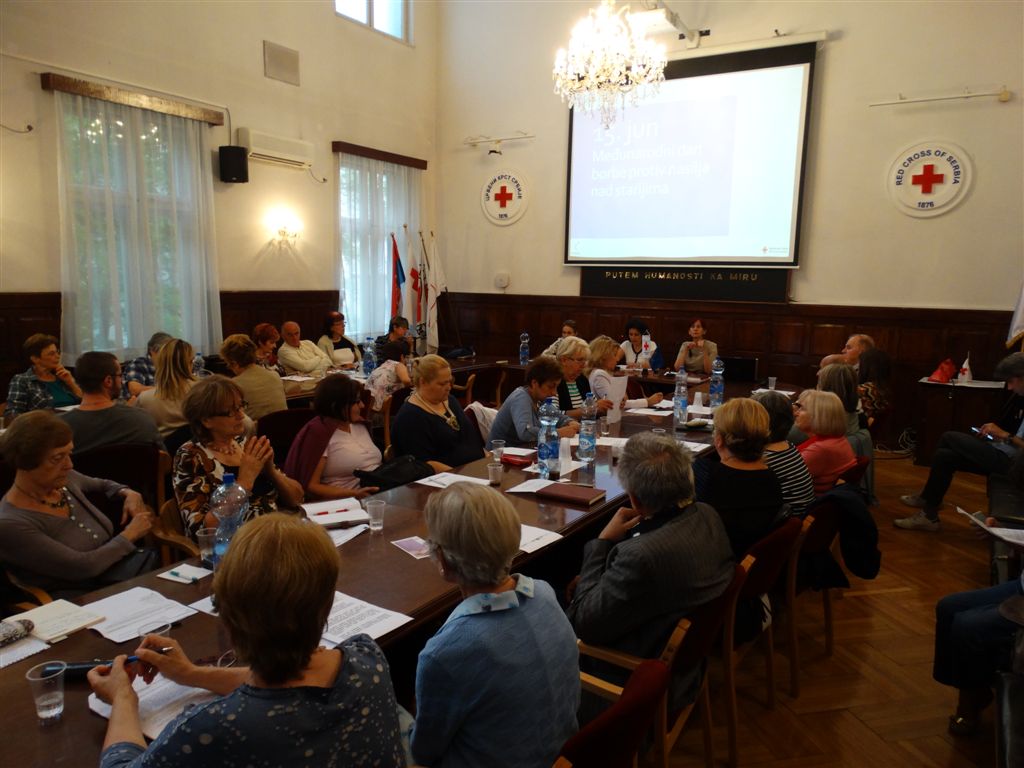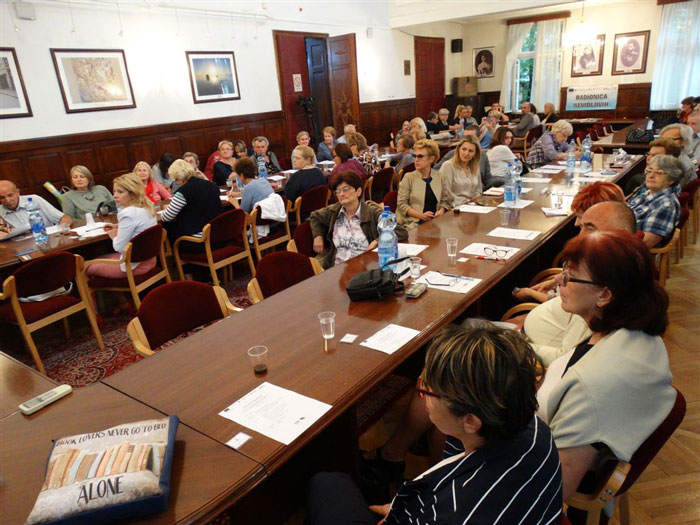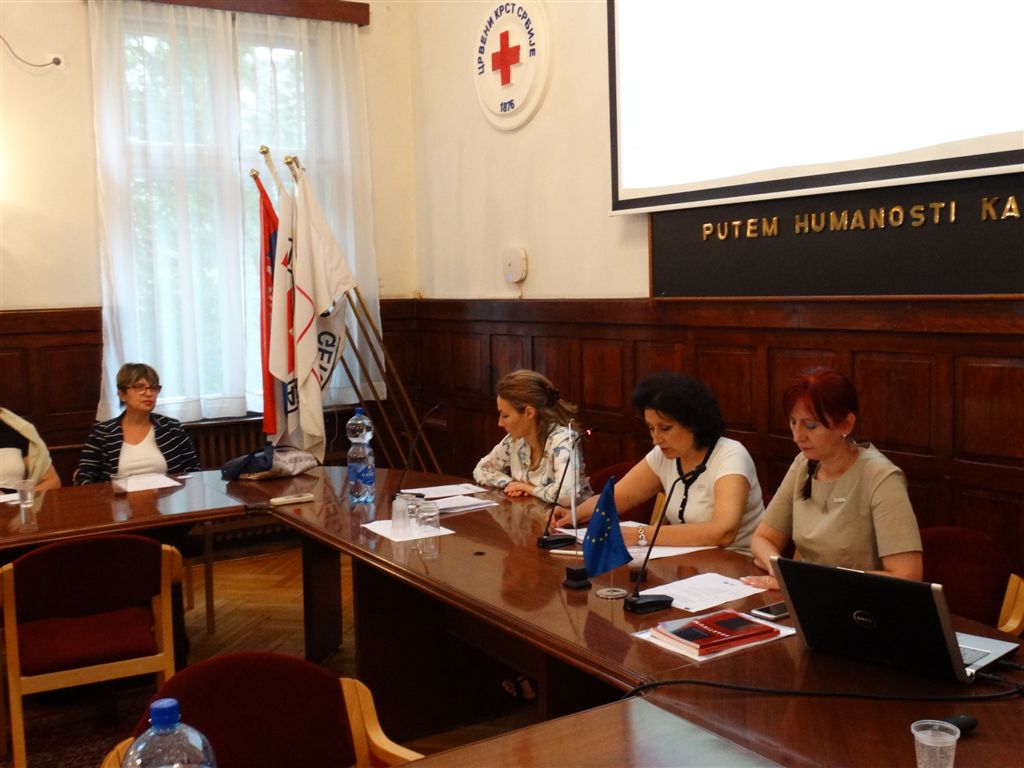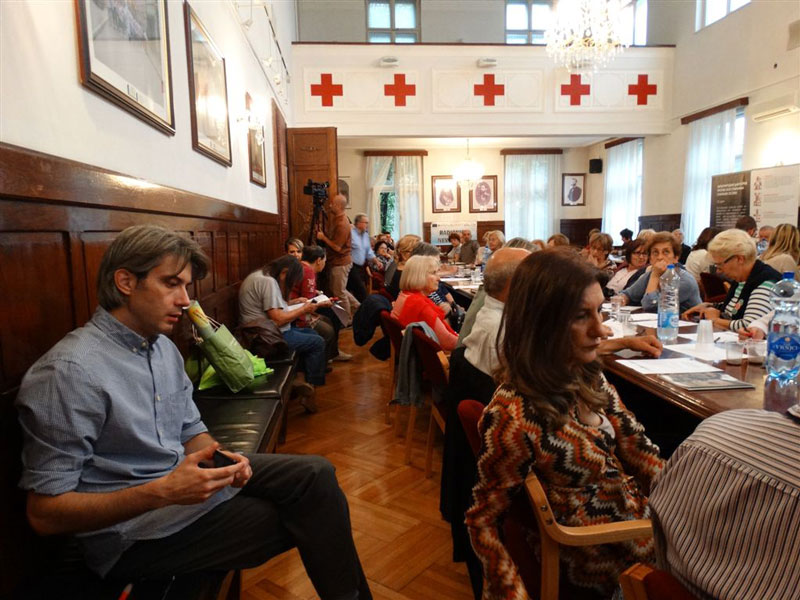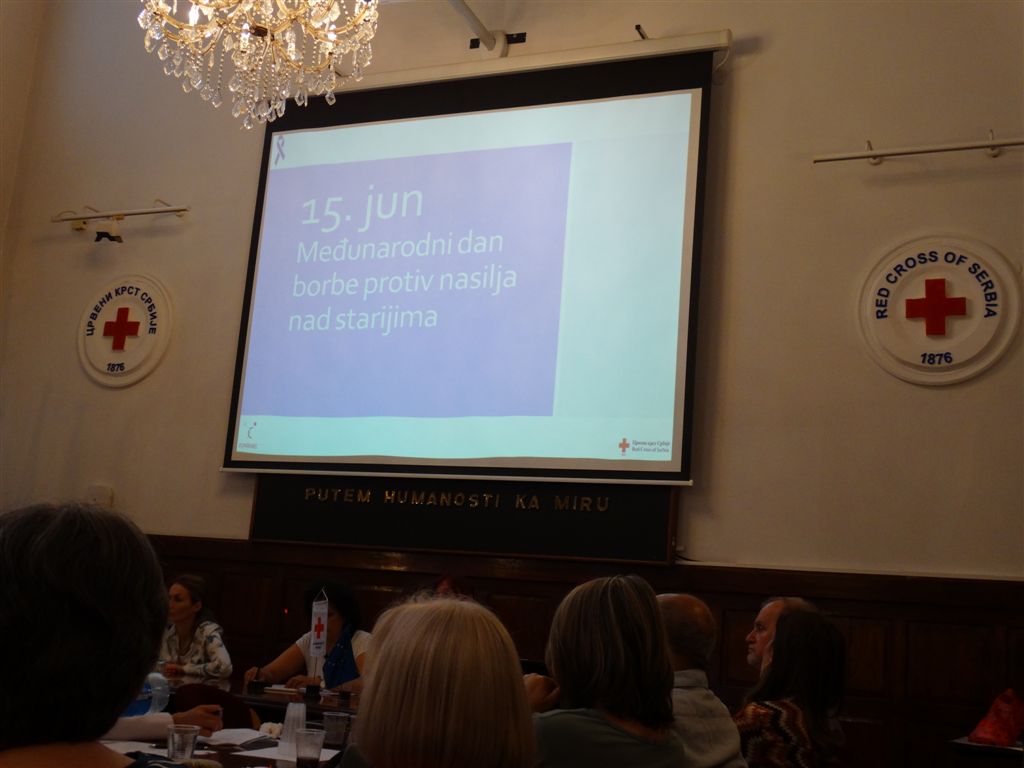World Elder Abuse Awareness Day
World Elder Abuse Awareness Day was marked on the 15th June 2018 in the Congress Hall at the Red Cross of Serbia. Marking of this day has started in 2006 following the initiative of International Network for Prevention of Elder Abuse (INPEA). In Serbia this date has been marked in 2007 for the first time, following the initiative by Red Cross of Serbia and HumanaS Network and ever since it has been marked through joint actions of civil and public sector.
This year, the World Elder Abuse Awareness Day was marked by organising a panel discussion “Elder abuse – is it recognised?” The goal was to ensure older people’s voice was heard and have older people themselves talk about elder abuse, its types, recognition and barriers to reporting and penalising.
The panel discussion was opened by Ms. Vesna Milenovic, Secretary General of the Red Cross of Serbia, emphasising the importance of data collection so that elder abuse can be understood and its frequency recognised which will enable the society to plan measures to prevent this public health and social problem. She especially highlighted groups at highest risk in the population of older people.
The Commissioner for Protection of Equality, Ms Brankica Jankovic talked about many years of successful cooperation of her office with the Red Cross of Serbia and the great progress made through research and advocacy that ensure public is aware of elder abuse rather than consider it a family matter. She emphasised that this is a problem that will not be solved overnight as its complexity demands intervention from many angles but that progress can be seen in many more cases being reported than before.
Before older women and men spoke, Ms. Natasa Todorovic of the Red Cross of Serbia presented concrete figures describing the elder abuse in Serbia pointing out that 19% of older persons in our country report having been exposed to some form of abuse in their older age. It is important to talk about the risk factors that demonstrate that older persons – and older women in particular – who are functionally dependent, suffer poor physical health, have low income or are financially dependent on others, have impairments – are at a higher risk of abuse than other older people, as well as that existing relationship with the perpetrator also affects the risk.
Older persons participating in the discussion were active older people: older volunteers, retired university professors and researchers: Slavica Rodic, representing Volunteer Service Zvezdara, Radovanka Andric, older volunteer of the Red Cross of Kragujevac, Danica Smic, older volunteer of the Red Cross of Savski venac Nadezda Nikolic, Cahirwoman of Dayly Centres and Clubs for Older People of the Gerotological Centre Belgrade, Prof Dr Dejan Sumrak and Prof Dr Milosav Milosavljevic both of civil society organisation ISP Evergreen – a Network of Social Researchers.
